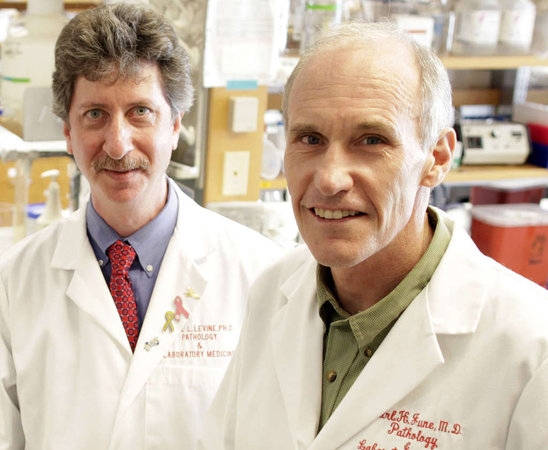
Visitors / Employees
Penn researchers report a gene-therapy success

By Marie McCullough, Philadelphia Inquirer
For a quarter of a century, gene therapy has been stymied, largely because the patient's immune system attacks the treatment as a suspected rogue - or because it actually does turn rogue.
Now, University of Pennsylvania researchers have convincingly shown that they can overcome these formidable obstacles. Cells that were genetically modified to fight HIV have persisted for up to 11 years - and counting - without bad side effects in 41 patients. In two other patients, the modified cells were safe but not as durable, according to the Penn study, published last week in Science Translational Medicine.
Although the gene therapies being tested showed hints that they could be effective against the AIDS virus, the studies looked at whether the approach was feasible and safe, not whether it worked. All of the patients were also taking standard HIV drugs, called antiretrovirals.
The study involved painstaking molecular analysis of blood samples taken annually from the patients, who participated in separate studies begun in 2000, 2002, and 2004.
"We were astonished that we could detect the modified cells for so long. It's a relatively small number of patients, but more than 500 years of patient data," said University of Pennsylvania pathologist Bruce Levine, a leader of the research. "But it's difficult to separate with certainty the effectiveness of this treatment from the antiretrovirals."
Read the rest of this story at Philly.com


